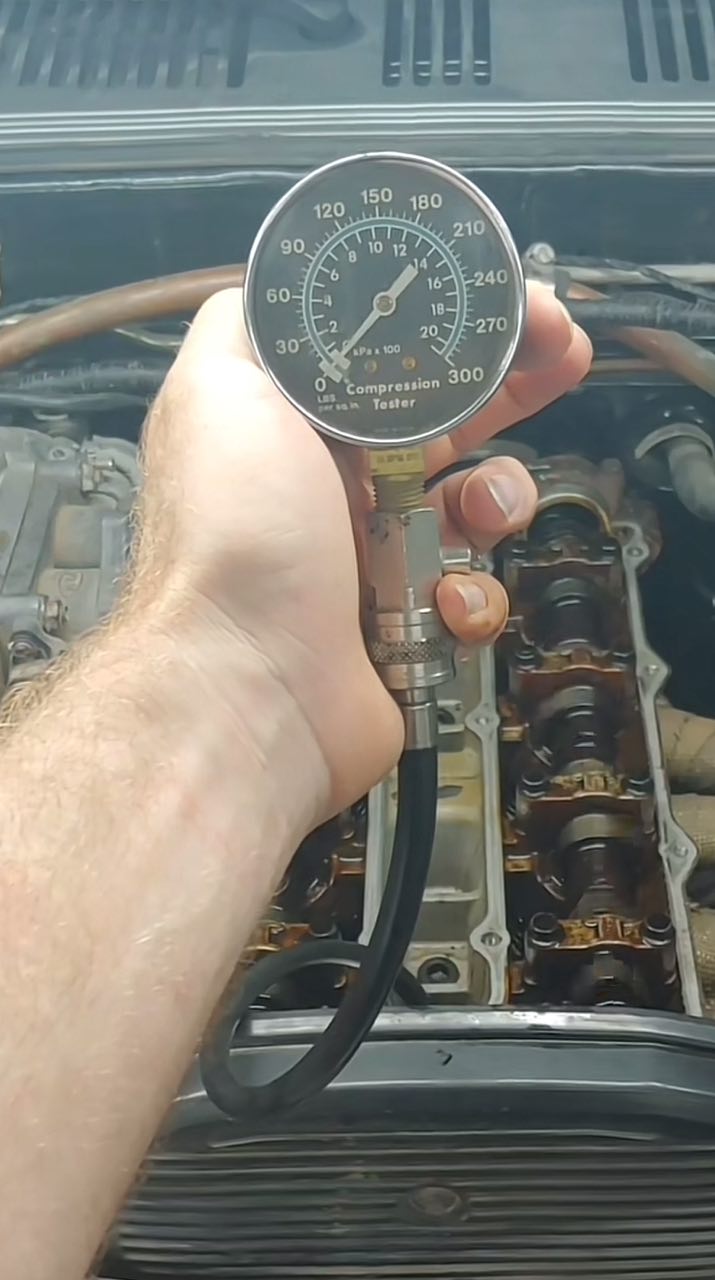A compression test aims to identify any problems in your car’s cylinders, such as worn rings or valves, that may prevent your engine from operating efficiently. A properly functioning engine should have a high compression ratio, resulting in better fuel efficiency and increased power output from the motor. Understanding how to conduct a compression test on your vehicle can assist in identifying any engine issues before they become significant problems. In this article, we will discuss what a compression test on a car is and how it can help you ensure that your vehicle runs efficiently for years to come.
 What Is a Compression Test?
What Is a Compression Test?
A compression test is an essential diagnostic procedure used to measure the internal combustion strength of a car’s engine. It is performed by measuring the amount of compression in each cylinder, which indicates the amount of pressure the pistons generate as they move up and down in their cylinders. The results from a compression test will help determine if an engine has any mechanical issues, such as worn valve seals, rings, or even a blown head gasket. If any issues are detected, they can be addressed before they cause additional damage to the engine. It can also help identify if something is wrong with one or more cylinders that could lead to misfires and poor performance. By performing regular compression tests on your car’s engine, you can ensure it runs smoothly and efficiently for years to come!
How to Conduct a Compression Test?
Compression tests are relatively simple and require very little specialized equipment. The most important tool you will need is a compression tester, which can be purchased online or at any auto parts store. Once you have the tester, follow these steps:
-
Warm up the engine by running it for about 10 minutes.
-
Ensure all the spark plugs are removed and set aside, as they should not be connected to the engine during the test.
-
Connect the compression tester gauge to one of the spark plug holes, ensuring it is sealed tightly with no air leaks present.
-
Start up the engine and keep your foot off the accelerator while cranking it over several times in short bursts to get a consistent reading for each cylinder.
-
Note each cylinder’s compression readings to indicate how well your engine is operating and its overall health.
-
If any cylinder has significantly lower readings than others, this may indicate a problem with that cylinder’s valves or pistons, or possibly a bad head gasket or worn rings—issues that should be addressed by a qualified mechanic ASAP!
-
Once all cylinders have been tested, shut off the engine and disconnect the compression tester gauge from its spark plug hole before reconnecting all your spark plugs and replacing their wires in place if necessary.
Results of the Test
The results of a compression test will vary depending on the type of engine and its current condition. Generally, a healthy engine should have a compression ratio between 120-175 psi for each cylinder. If any cylinder has significantly lower readings than this, it may indicate an issue with either the valve seals or pistons in that particular cylinder. Additionally, if all cylinders have low readings—less than 100 psi—it could indicate an internal problem, such as worn rings or even a blown head gasket. In either case, it’s essential to take your car to a qualified mechanic so they can diagnose and repair any problems with your engine before further damage is done.
Conclusion
A car compression test is a vital diagnostic tool to ensure your engine functions properly. By performing a compression test on your vehicle, you can detect any potential problems with the valves or pistons in your engine and address them before further damage is done. It’s important to remember that the results of the test may vary depending on the type of engine and its current condition, so it’s best to take your car to a qualified mechanic if you have any concerns about any readings from the test. By conducting regular compression tests on your car, you can ensure that your vehicle runs efficiently and with maximum power output for years to come.


 What Is a Compression Test?
What Is a Compression Test?